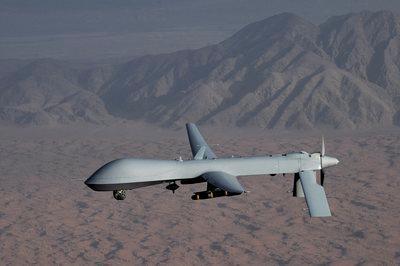Google’s work for the Pentagon on the “Project Maven” drone-warfare initiative led to an employee revolt that pushed the Mountain View tech giant to pull out of the artificial intelligence project.
But the company’s two-year-old venture fund, Gradient Ventures, has invested in Cogniac, a San Jose firm that worked for the U.S. Army on similar technology. Now, according to a new report, Cogniac is pitching its products to the federal government for use at the border with Mexico.
![]()
Cogniac makes AI software for analyzing imagery. The company has highlighted its contract with the U.S. Army to work on a drone-warfare project under an initiative called “Systems Adaptive Red Team/Technical Support and Operational Analysis.”
According to a report from drone website UASWeekly which Cogniac linked to on its website, “Cogniac’s mission was to demonstrate the ability of their AI application to provide fast, reliable, and actionable analysis of real-time imagery in a field command environment.”
A company official is quoted in that report saying that an exercise Cogniac undertook with the Army combined a military drone with Cogniac software to provide a live data feed that “became the ‘persistent eyes’ of the mission command.”
Although that report said Cogniac’s AI helped provide “a life-saving umbrella for small operating units in hostile environments,” a 2017 Army request for information document said the drone project Cogniac worked on is intended to “improve Warfighter maneuver, survivability and lethality.”
It’s unclear whether Cogniac’s contract with the Army is ongoing. Cogniac and Google did not immediately respond to questions.
Google, in a July 2017 blog post announcing the launch of Gradient Ventures, described Cogniac as one of the first recipients of its funding. That was six months after UASWeekly reported on Cogniac’s exercise with the Army.
Meanwhile, according to another report, Cogniac has been promoting its imagery-analysis software to U.S. Customs and Border Protection for use in helping secure the southern border. The company has participated in trials with the agency and said “it’s exploring ways for a bigger deployment,” according to a report Thursday in Vox.










